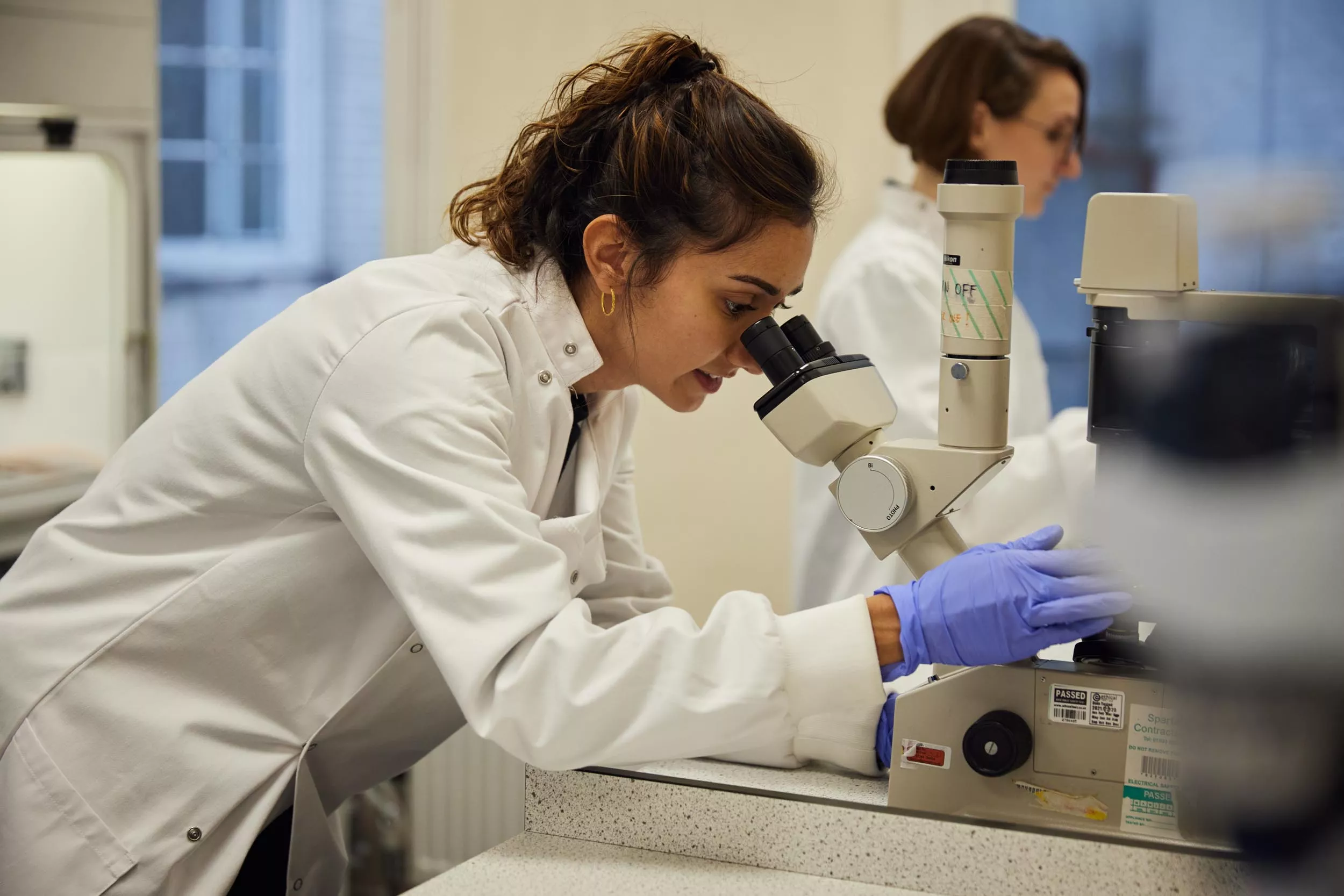
Thanks to your support, we’re powering life-changing diabetes research. Right now, we’re funding 133 dazzling diabetes research projects, including 32 new ones that we backed in 2024.
Each year, your generosity helps us invest in more outstanding science and ideas with the potential to transform the lives of people living with diabetes.
In 2024, we committed over £4m into 22 shiny new research projects exploring all types of diabetes and its complications. And we’re tackling critical research gaps along the way.
For example, we dedicated over half a million pounds to diabetes research focused on women’s health. Plus £1 million to improve care for the growing number of people under 40 developing type 2 diabetes. But that’s not all.
We invested a further £1.1m into our Type 1 Diabetes Grand Challenge which now has 19 exciting projects underway, involving 161 researchers in 47 institutions across eight countries. This includes 10 new projects that got off the ground in 2024 which aim to unlock breakthroughs in next generation insulins and treatments to replace insulin-making beta cells and stop the type 1 immune attack.
Elsewhere, here’s a snapshot of just some of the projects you helped us fund last year.
Addressing the care gap for young people with type 2 diabetes
Nearly 168,000 people under 40 years in the UK live with type 2 diabetes, with thousands more likely undiagnosed. Type 2 diabetes can progress faster and more aggressively in younger people, leading to higher risks of harmful diabetes complications, like heart attacks or kidney disease, and shorter life expectancy.
But diabetes care isn’t adapted to meet the specific needs of younger adults with type 2. That’s why, last year, we invested £1m into three important diabetes research projects.
We funded Dr Michelle Hadjiconstantinou to adapt an existing digital type 2 self-management programme for younger people with type 2 diabetes.
Their research will explore how well young adults engage with the programme, its effectiveness in improving blood sugar levels and quality of life, and how it could be rolled out across the NHS. This could give younger people the tailored support they need.
Professor Claire Meek will use our funding to design a new programme specifically for pregnant women with type 2 diabetes. This will provide much-needed advice on diet, exercise and other aspects of managing the condition during this particularly challenging time, giving women with type 2 the best chance for a healthy pregnancy and baby.
Finally, in partnership with MRC, we’re supporting Dr Sophie Jones who’ll explore remission in younger people with type 2. Our DiRECT study showed that low-calorie diets can help some people living with type 2 diabetes and obesity to lose weight and go into remission, and inspired the NHS Type 2 Diabetes Path to Remission programme.
Dr Jones will investigate if a low-calorie diet approach can support younger adults go into remission, and will gather their insights on the NHS Path to Remission programme. This will help inform how it could be better shaped to their unique needs.
These projects could make sure young people with type 2 have the support and tools they need to best manage their condition, stay healthy and thrive.
Looking down a new lens to protect eye health
We’re committed to tackling inequalities in diabetes care because we know that diabetes doesn’t affect everyone equally. For example, Black and Asian people living with diabetes have a higher risk of developing more severe diabetic retinopathy compared to White people, making regular eye screening critical.
To break down barriers, we’re funding Professor Peter Scanlon in partnership with Fight for Sight to test a new type of eye screening camera that avoids the need for eye drops - an often uncomfortable part of the screening process. Professor Scanlon will focus on people from Asian and African-Caribbean backgrounds, checking if the new technology works for people of different ethnicities.
Making eye screening more comfortable and accessible for everyone could protect more people from serious eye damage and vision loss.
Read more about Professor Scanlon’s research.
Treating type 3c
Type 3c diabetes is one of many less well known types of diabetes. It’s often misdiagnosed and there’s no tailored treatment for it.
It’s caused by damage to the pancreas, for example when conditions like chronic pancreatitis lead to inflammation and scarring. When scar tissue forms in the pancreas harmful substances are released that may damage or even kill insulin-producing beta cells.
We’re funding Professor James Shaw to test whether two drugs, usually used to treat lung conditions, can prevent scarring in the pancreas and protect beta cells.
This research could bring us closer to the first-ever treatment for type 3c diabetes, helping people to avoid the need for insulin while having more stable blood sugar levels.
Knowing more about the impact of treating scarring in the pancreas on beta cells could have future implications for treating type 1 or type 2 diabetes too.
Read more about Professor Shaw’s research.
Together, we’re funding research that fosters new possibilities to improve the lives of people affected by diabetes and brings hope for treatments and a cure closer. We couldn’t do it without your support. Thank you.
